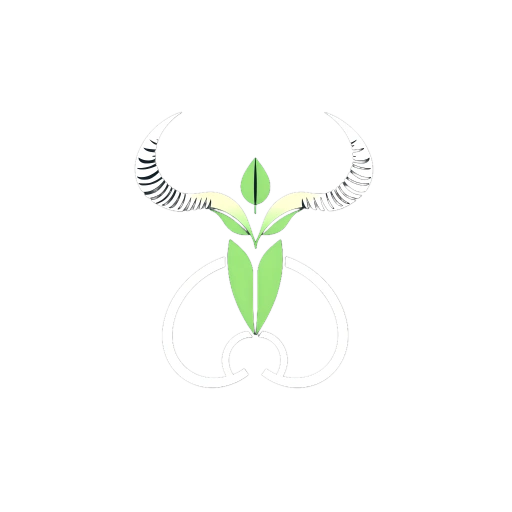He’s the boy who shoved you into lockers.
He’s the athlete who stole your girlfriend, smirked across the cafeteria, called you names that still ring in your ears when your defenses are down.
He’s the alpha.
And in your fantasies—decades later, married, submissive, intelligent—you bring him back. Not to fight him. Not to get revenge.
But to watch him take your wife.
He walks into your bedroom like he owns it. Calls you by your old nickname, the one that made you wince. Grabs her hair, kisses her like she’s been his for years. She laughs, maybe even mocks you a little. You say no. You beg. You ache.
And still—something inside you swells.
This is not humiliation alone.
It’s reclamation.
And you didn’t make it happen.
She did.
Because what so many husbands don’t realize—until they live it—is that the “bully bull” dynamic isn’t just about power.
It’s about emotional time travel.
And for wives, it’s not just erotic fantasy.
It’s performance art.
Because the moment she sees him—the man who makes her husband shrink—she decides.
She’s going to show him what real power looks like.
And she’s going to do it with her body.
Why Men Fantasize About Their Rivals
In my clinical work, I’ve been stunned by how often men specifically request this frame: I want you to sleep with the guy who used to bully me. I want to watch. The bull isn’t random. He’s the gym teacher. The neighbor’s son. The older brother’s friend. The guy she dated in high school before “settling” for him.
This is not coincidence.
It’s erotic triangulation.
And it’s rooted in some of the most primal elements of masculine development:
- Dominance hierarchies: From a young age, boys are ranked—physically, socially, emotionally. And the men who sit atop that hierarchy become not just feared, but fixated on.
- Internalized inadequacy: Many submissive men carry a sense that they’ve never “won” the social game—and cuckold fantasies allow them to surrender to that reality, rather than fight it.
- Erotic recontextualization of shame: By watching the “bully” take what was his—his wife, his home, his narrative—he no longer has to resist the humiliation. He can enjoy it.
And what I see again and again is this:
He doesn’t want to be equal.
He wants to lose.
But this time, on his terms.
This time, with his wife watching.
And that twist—turning the bully into the bull—isn’t regression.
It’s transformation.
It’s the husband taking one of the most painful parts of his past and re-scripting it into arousal.
He’s not healing the wound.
He’s eroticizing it.
And when it’s done well—when it’s safe, consensual, and held with care—it becomes one of the most powerful tools in the cuckold repertoire.
Not because it hurts.
But because it frees him from pretending it doesn’t.
Why Wives Come Alive in the Bully Dynamic
What surprises many husbands is how deeply their wives embrace the bully scenario—not reluctantly, not politely, but fiercely.
They don’t just go along with it.
They lead it.
They put on the high heels she would’ve worn in college. They text the bull while their husband watches. They say things like:
“You could never do that to me.”
“He’s everything you’re not.”
“I should have picked him from the beginning.”
But underneath the fantasy—underneath the lines they co-create and the sexual bravado—is something much more important:
She’s protecting him through performance.
She’s helping him feel the surrender he craves, without making him admit it.
Because in this scene, the wife becomes the translator.
She knows what her husband needs, even when he says “don’t.”
And she knows exactly how far to go.
Because when he’s crying—not in sadness, but in cathartic submission—she wipes his face, pulls him close, and whispers, “I’ve got you.”
She’s not mocking him.
She’s witnessing him.
And in that role, she becomes more than a wife.
She becomes a goddess of contradiction.
The one who can let another man inside her body—
And still be his to worship.
Evolutionary Shadows: Rewriting the Dominance Narrative
At the core of the bully fantasy is a primal biological tension:
- One man is bigger, stronger, more dominant—traits historically tied to reproductive success.
- The other man—smaller, more emotional, more compliant—is not selected by nature, but by nurture.
And yet, in cuckold dynamics, it’s the second man who wins.
Because he has the courage to surrender.
This flips the ancient male hierarchy on its head.
In evolutionary psychology, female mate choice often favors men with dominant traits during peak fertility—what we call the ovulatory preference shift. But over time, women tend to prioritize emotional stability, investment, and trust.
Cuckoldry collapses that timeline into a single scene.
She mates with the “alpha” bull—often a stand-in for the bully who once symbolized social power.
But she stays with the husband.
Worships the husband.
Elevates the husband for his submission.
In this light, cuckoldry isn’t just sexual. It’s symbolic reconciliation between evolutionary impulse and conscious choice.
The husband no longer has to compete.
He can finally choose to lose.
And in that choice, he wins something even more rare than dominance:
He wins truth.
Modern Masculinity and the Need to Be Seen Small
In a culture where men are still expected to be providers, protectors, and performers, cuckoldry offers something most men never admit they want:
The freedom to not be the strong one.
To be small.
To be denied.
To be broken—not cruelly, but intimately.
And the bully fantasy intensifies this.
Because now, he’s not just small.
He’s shrinking in front of the man who made him feel that way first.
But this time, it’s not lonely.
His wife is watching.
And instead of defending him, she confirms it.
“Yes, he’s better.”
“Yes, you’re weaker.”
“Yes, you’re mine.”
And for the husband—who has spent decades pretending not to feel this inadequacy—those words are not cruel.
They’re clarifying.
He doesn’t have to fight anymore.
He doesn’t have to prove anything.
He just has to kneel.
And in kneeling, he finally feels… safe.
Because the fantasy isn’t about degradation.
It’s about relief.
Clinical Reflections: When the Bully Fantasy Becomes Real
In therapy, I approach the bully dynamic with care.
It’s one of the most emotionally volatile scenes—because it often touches on unresolved trauma, social pain, or shame.
But when done ethically and intentionally, it becomes a space for ritualized reenactment.
The husband sets the script.
The wife holds the frame.
The bull plays the role.
And everyone knows where the edges are.
That’s what makes it powerful.
Because it’s not random humiliation.
It’s curated surrender.
And when the wife leads the scene—not with cruelty, but with clinical precision—it becomes an experience of transformation.
For him.
For her.
For the relationship.
And sometimes—when the tears come, or the orgasm hits, or the silence finally breaks—he looks up at her and says:
“Thank you.”
Not because she mocked him.
But because she understood him.
And showed him who he really was.
Even when he was too afraid to say it out loud.
Final Thoughts: The Bully, Reimagined
The bully is real.
He exists in the husband’s memory.
In the mirror.
In the performance of the bull who now enters his marriage like a throne room.
But he is not a threat.
He is a symbol.
And symbols, when handled with care, do not break us.
They rebuild us.
The bully takes.
The husband yields.
The wife decides.
And in that triangle, something ancient is released.
Not pain.
Permission.
Because when the man who once feared the bully now invites him in…
And the woman who loves him says, “You were always enough, even when you were small…”
The past doesn’t haunt them anymore.
It becomes arousal.
And the marriage doesn’t collapse.
It ascends.
Not through fantasy.
But through performance that tells the truth.
One thrust at a time.



